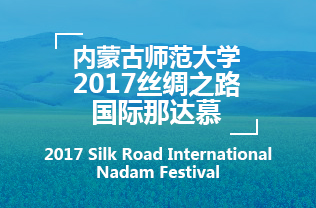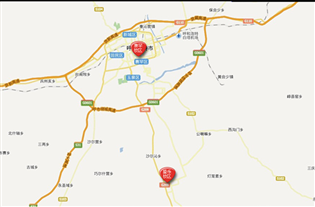School of Ethnology and Anthropology
The School of Ethnology and Anthropology at Inner Mongolia Normal University was founded in North China’s Inner Mongolia autonomous region in March 10, 2019.
History
In the early 1950s, professors at IMNU, such as Li Di, began to conduct research into the disciplines of Ethnology and Anthropology based on philology.
After several generations of unremitting efforts, IMNU’s established discipline of Ethnology achieved a leapfrog in its development.
In 2006, IMNU obtained approval to grant a master's degree in Ethnology. That same year, IMNU’s Ethnology discipline ranked third among all the Chinese universities in the subject evaluation conducted by the Ministry of Education.
In 2015, IMNU established the Advanced Institute of Ethnology and Anthropology.
In March 2018, IMNU obtained approval to grant doctorates in Ethnology.
In October 2018, IMNU established the School of Anthropology and Anthropology.
In March 2019, IMNU received approval to grant a master’s degree in Ethnology.
IMNU’s Ethnology subject was rated as a key subject in the Inner Mongolia autonomous region and a first-class subject at the university.
Teaching and Research
Currently, the School of Ethnology and Anthropology has five doctorate and master’s degree programs in Ethnology, Marxist Ethnic Theories and Policies, History of Chinese Ethnic Minorities, the Economy of Chinese Ethnic Minorities and the Art of Chinese Ethnic Minorities.
It also has three second-level master's programs in Folklore, Anthropology and Religion.
At the same time, Inner Mongolia Normal University has cooperated with the Chinese Academy of Social Sciences to establish three high-level scientific research platforms: the Advanced Institute of Ethnology and Anthropology of Inner Mongolia Normal University, the Intangible Cultural Heritage Institute of Inner Mongolia Normal University and the Buddhist Culture Institute of Inner Mongolia Normal University.
A Mongolian Folklore video course launched by IMNU is a national-level open video course and IMNU’s Mongolian Folklore Series Course teaching team is recognized as a national-level teaching team.
IMNU also operates the key research base for Inner Mongolian folk culture of philosophy and social sciences and the key research base for ethnology of humanities and social sciences.
School structure
The school has seven teaching and research centers: the Ethnology Department, the Ethnology and Anthropology Research Center, the Marxist Ethnic Theory and Policy Research Center, the Chinese Ethnic Minority History Research Center, the Chinese Ethnic Minority Economic Research Center, the Chinese Ethnic Art Research Center and the World Ethnic Research Center.
Moreover, it has set up administrative offices, school offices, teaching and research offices, student affairs offices, reference rooms, film and television anthropology laboratories and ethnology and anthropology professional laboratories.
Staff
The school has 36 faculty members, of whom eight are administrative assistants and 28 full-time teachers.
Among the full-time teachers, 19 have doctorates, accounting for 67.9 percent of the total, while seven have master's degrees, accounting for 25 percent.
Of the full-time teachers, 10 are professors, accounting for 35.7 percent; six are associate professors, accounting for 21.4 percent; and 12 are lecturers, accounting for 42.9 percent.
In terms of tutors, the school currently has 18 ethnology doctorate tutors and 18 master’s degree tutors.



 Print
Print Mail
Mail

